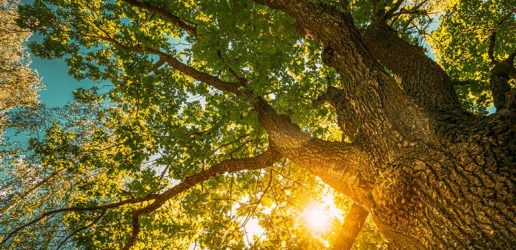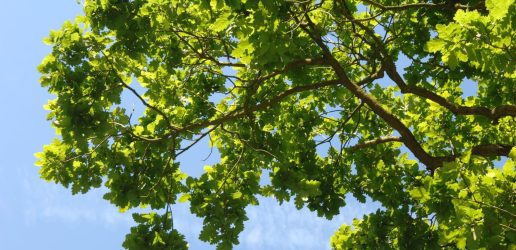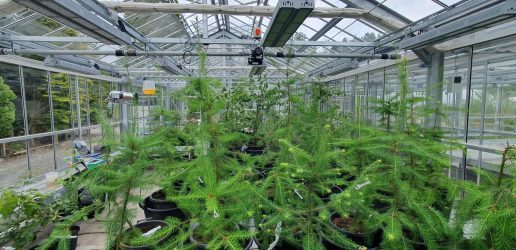Urban trees are increasingly recognised for the services they provide to support sustainability and quality of life in our towns and cities.
Now a newly published suite of Forest Research publications investigates how the services provided by urban trees, such as the capture of carbon, and flood risk reduction (so called ‘ecosystem services’), varies with the stature and age of trees common to the urban environment of Great Britain.
The publications detail how large and medium sized tree species provide more environmental and social benefits than small tree species. However, they also explain that small and medium sized trees are important for adding species and structural diversity, as well as providing ecosystem services in areas where large trees are unsuitable.
By drawing on the various qualities of different species, the documents detail how managers can use urban trees to meet multiple objectives such as providing climate cooling or reducing the chances of flooding as our climate changes.
The suite consists of two Research Reports, one focussed on large stature tree species and another on small and medium stature trees. They discuss the provision of four services (carbon storage, carbon sequestration and avoided storm water run-off) over the lifetime of a range of tree species, based on calculations incorporated within software tool i-Tree Eco.
There is also a Research Note which summarises the provision of these four services by 30 tree species common to the urban environment in the UK. Drawing upon a review of Local Authority tree strategies, it reveals the implications of management practices for the delivery of these services by individual trees.
The publications aim to inform species selection for future tree planting, as well as the preparation of local authority urban tree management plans. They complement DEFRA’s Urban Tree Manual which provides advice on selecting and procuring the right tree for the right place in urban areas.
The reports are available to download from the Forest Research website:
Hand, K. L., Doick, K. J. and Moss, J. L. (2019). Ecosystem services delivery by large stature urban trees. Research Report. Forest Research, Edinburgh.
Hand, K. L., Doick, K. J. and Moss, J. L. (2019). Ecosystem services delivery by small and medium stature urban trees. Research Report. Forest Research, Edinburgh
Hand, K. and Doick, K., J. (2019) Understanding the role of urban tree management on ecosystem services. Research Note. Forest Research, Edinburgh.
Recent News
View All news
Woodland managers are invited to take part in a new project to protect the nation’s oaks
Join a webinar and in-person workshop to learn about monitoring and protecting oak trees.

Webinar: Observing and understanding oak health across the UK
An online webinar launching a new, practical oak-health monitoring system for woodland managers and volunteers across the UK.

Webinar: Understanding drought risk for UK woodland creation and forestry
Hear about new research on how rising drought risk is reshaping UK forestry and the tools being developed to support climate‑smart woodland creation.

Woodland managers are invited to take part in a new project to protect the nation’s oaks
Join a webinar and in-person workshop to learn about monitoring and protecting oak trees.

Webinar: Observing and understanding oak health across the UK
An online webinar launching a new, practical oak-health monitoring system for woodland managers and volunteers across the UK.

Webinar: Understanding drought risk for UK woodland creation and forestry
Hear about new research on how rising drought risk is reshaping UK forestry and the tools being developed to support climate‑smart woodland creation.
